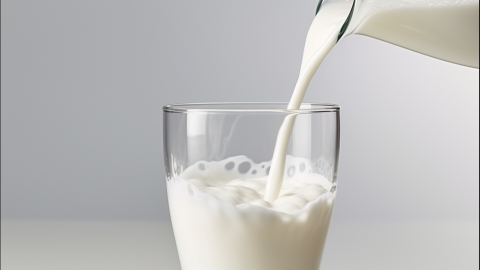Can children with a fever drink milk?
Generally speaking, children with fever can drink milk, as long as the amount consumed is moderate. Detailed explanations are as follows:

When a child has a fever, energy consumption increases and fluid loss through sweating is common. Milk can simultaneously replenish energy, fluids, and nutrients, making it one of the appropriate beverages. Milk contains high-quality protein that helps repair damaged cells and enhances the body's ability to fight illness. It is also rich in calcium, which helps maintain bone health and prevents insufficient calcium intake due to poor appetite during fever. The carbohydrates in milk can be quickly converted into energy, alleviating fatigue caused by fever. Additionally, its liquid form is easily absorbed by the body, placing minimal burden on the gastrointestinal system.
When giving milk to a child with fever, the following points should be noted: if the child normally drinks milk without discomfort, it can be consumed as usual. However, if the child is lactose intolerant, it is recommended to choose lactose-free milk or temporarily avoid milk to prevent bloating or diarrhea. The milk's temperature should be appropriate, avoiding excessive coldness that could irritate the stomach. Additionally, consumption should be moderated to avoid excessive intake, which might affect the child's appetite for other foods.








